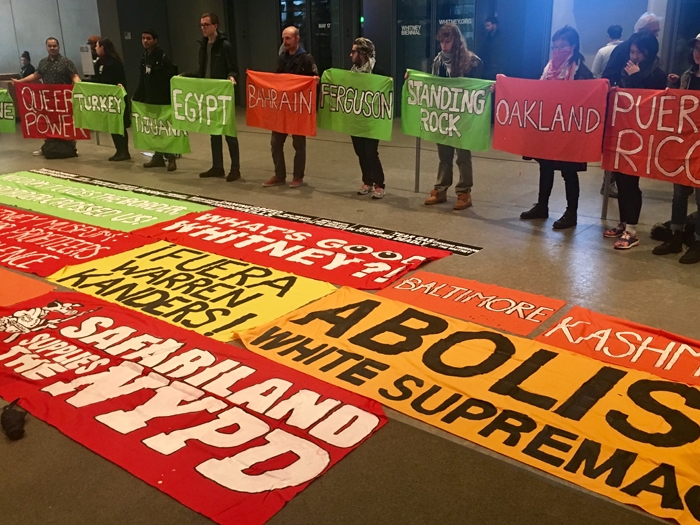Warren Kanders, the American art collector and patron, has said that his defence company Safariland Group will divest the divisions that sell tear gas and other ‘crowd control solutions’. Kanders resigned from his position as vice chair of the Whitney Museum in New York last year after sustained pressure against his presence on the board.
Safariland Group is to sell its divisions Defense Technology and Monadnock. The former sells tear gas and rubber and sponge rounds, while the latter sells other forms of riot gear including batons. In a statement, Kanders said that his company would focus on ‘passive defensive protection’ such as body armour, going forwards.
There have been unverified reports that products sold by Safariland have been used against protesters taking part in anti-racism protests in America over the past fortnight. Safariland tear gas was used against asylum seekers at the US-Mexico border last year. Safariland’s announcement this week did not cite a specific reason for divestment.

In December, following an open letter by museum staff against his role with the institution, Kanders defended his business interests, writing ‘Safariland’s role is not to determine when and how [its products] are employed. The staff letter implies that I am responsible for the decision to use these products. I am not. That is not an abdication of responsibility, it is an acknowledgement of reality.’
Eddie Arroyo, Agustina Woodgate, Korakrit Arunanondchai, Meriem Bennani, Nicole Eisenman, Forensic Architecture, Nicholas Galanin and Christine Sun Kim asked for their work to be removed from the Whitney Biennial in 2019, claiming that the Whitney had ignored ongoing concerns over Kanders. ‘The museum’s inertia has turned the screw, and we refuse further complicity with Kanders and his technologies of violence’ they wrote in a letter to the biennial curators. In March hundreds of artists and theorists had called for the removal of the board member, following similar demands in December 2018 made by museum staff. Artist Michael Rakowitz turned down an invitation to exhibit at the biennial over the issue.